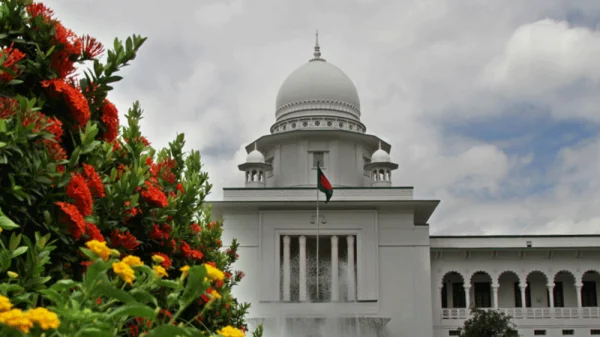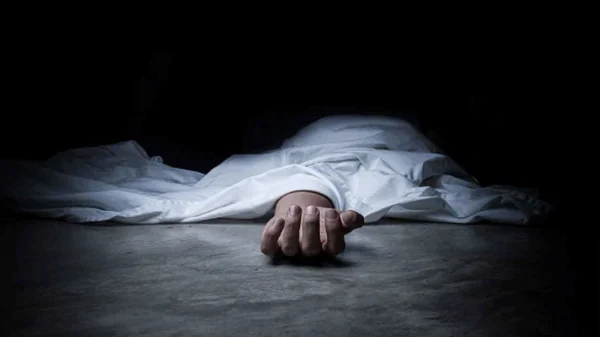Ashrayan-2: 59 Bede families dream of a new life with permanent homes

“If we get a permanent shelter, we will send our two sons to school,” said Rongila, a Bede woman.
The Bede, a gypsy-like ethnic community is among the most underprivileged and marginalised groups in the country.
Rongila is a mother of two sons – 5-year old Akash and 3-year old Robiul. Her husband, Alauddin, is a monkey and snake charmer.
The four-member Bede family now lives in a ‘Jhupri Ghor’ (a very tiny traditional makeshift abode of water gipsy) at Badedihi village under Barabazar Union in Kaliganj upazila of Jhenaidah district as do other Bede families.
The Bede woman has recently shared her dream with this correspondent as her family is going to get a permanent house with a two-decimal land as a gift from Prime Minister Sheikh Hasina.
Like her family, a total of 59 Bede families – 31 families from Badedihi village and 28 families from Kashipur village under Kaliganj municipality– are going to get the houses in the Ashrayan’s largest Bede housing site adjacent to Majdia Baor at Jagannathpur village under Barabazar Union in Kaliganj.
The Bede families are now dreaming for better life as the house construction works continue on the 2-acre housing site under Ashrayan-2 project of the Prime Minister’s Office.
“We’ve no dignity and no hope for life,” said Rongila, adding that her family leads a poor life with nominal incomes earned by her and her husband.
Rongila earns 5-6 kilogram rice a day by selling talismans, curing carious teeth and applying Shinga and other traditional activities in the village. Shinga is a buffalo horn used by a Bede woman to draw blood from a sick patient in the name of curing the patient.
Her husband can earn Tk 300-400 a day from monkey and snake charming, she added.
Jobaida, another Bede woman who lives with husband and five children at Badedihi village, said they would not need to lead gypsy life if they will have a permanent house.
“We never dreamt of having a pucca house on our own land. None can neglect us anymore if we have a permanent address. Now We make our children educated,” she said.
Jobaida, 32, and her husband Adol Sardar have four sons and a girl in the family. The eldest son is aged above 12.
Both husband and wife came out from the Bede traditional profession. Jobaida now works as a domestic help, while her husband is a vendor of spicy puffed rice (Jhal muri) who normally earn Tk 300-Tk 400 a day.
Kaliganj Upazila Nirbahi Officer (UNO) Sadia Jerin said they started house construction work after recovering the 2-acre Khas land worth about Tk 40 lakh from the grip of local influential persons.
“We’ve selected the 59 bede families through proper scrutiny to provide the underprivileged people with the houses under Ashrayan-2 project. Their next generation will get an improved life in a nice place,” she said.
Jhenaidah Deputy Commissioner Monira Begum said the housing site was selected on the bank of a baor (a water body) so that the Bede people can easily conduct their livelihood activities.
“It’ll be a beautiful habitation for the Bede community people. If they want, they would be able to cultivate vegetables and rear domestic animals there,” she said.
Some 65,474 houses are now being constructed for the homeless families in the third phase of Ashrayan-2 Project, said PMO Senior Secretary Md Tofazzel Hossain Miah.
“The cost against each house has been increased to Tk 259,500 from Tk 190,000 to make the houses more durable,” he said.
Describing Ashrayan project as Sheikh Hasina’s model for inclusive development, he said, “The living standard of a person improves radically (after getting a permanent house). It will help implement eight targets of the Sustainable Development Goals (SDGs).”
Earlier, a total of 117,329 pucca-houses with two-decimal lands were provided to the landless and homeless people as the gift of the Prime Minister under Ashrayan-2 project in the first two phases in 2021 on the occasion of Mujib Year.























Leave a Reply